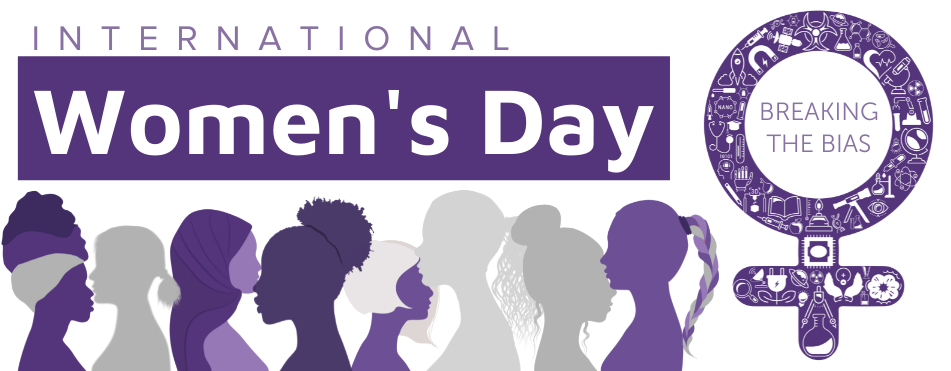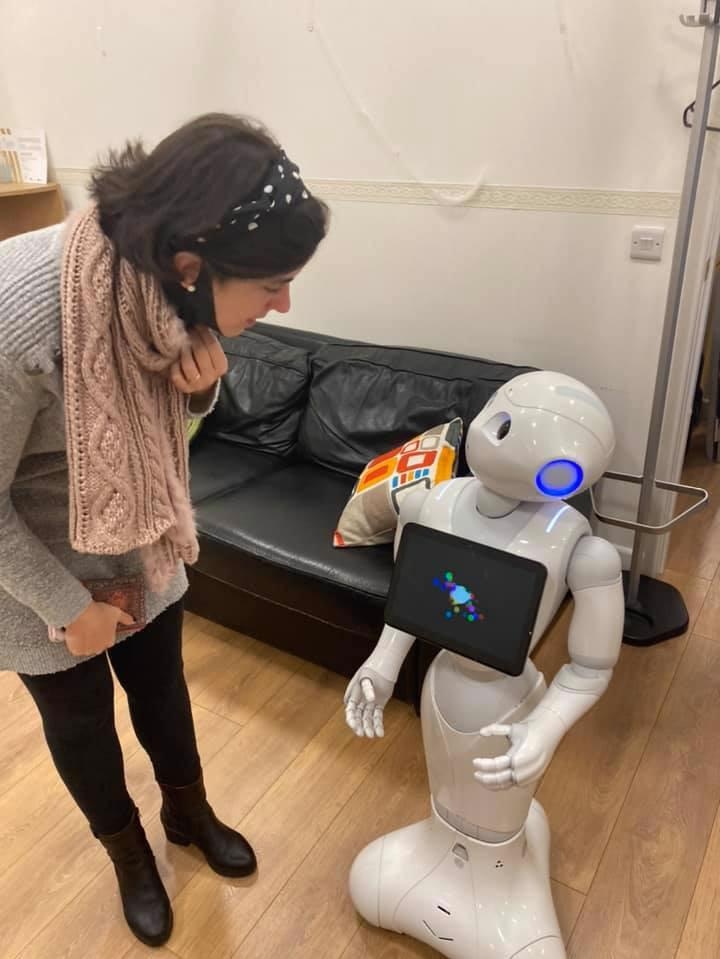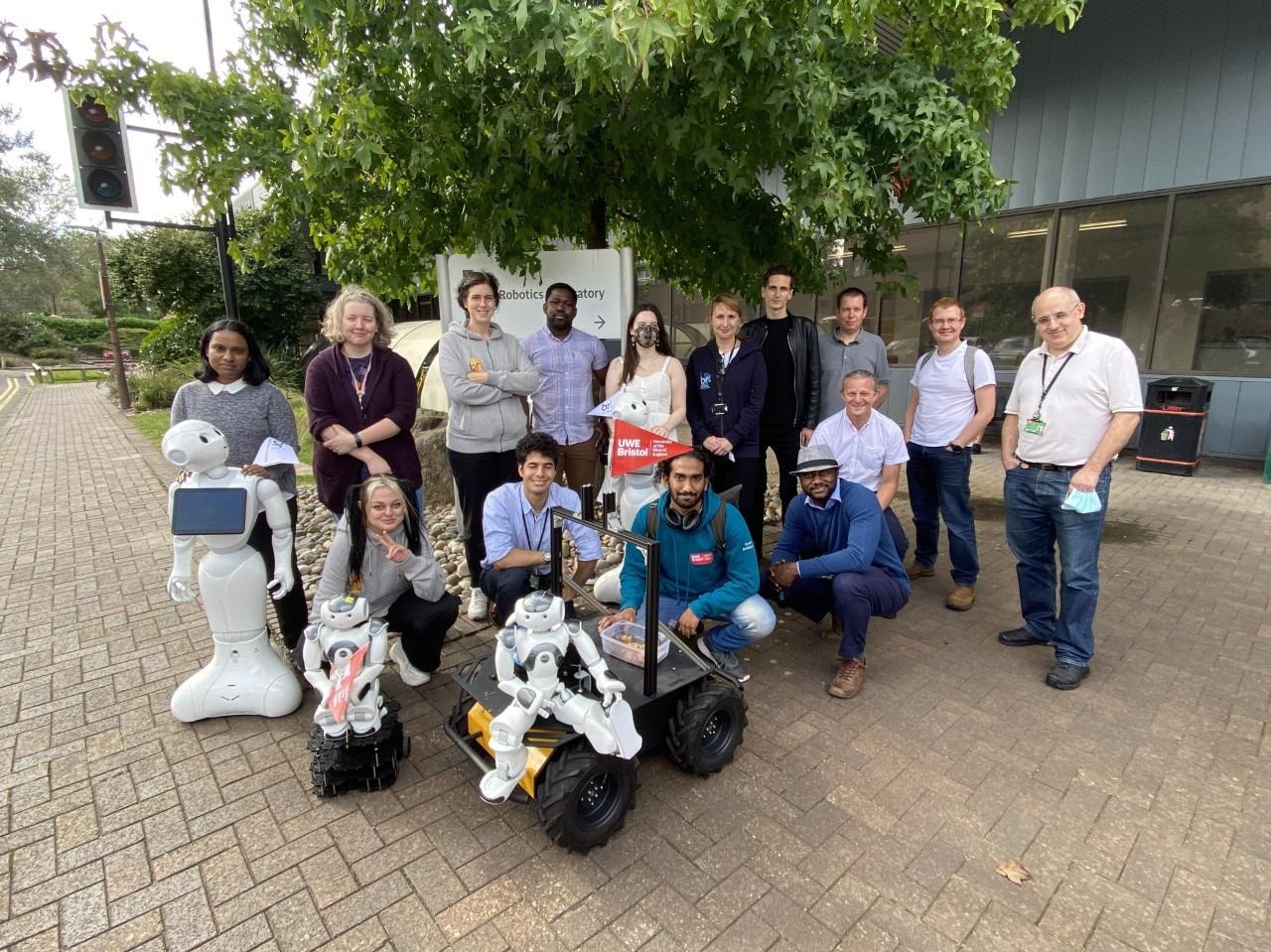For International Women's Day 2022, we speak with Dr. Virginia Ruiz Garate from Bristol Robotics Laboratory about the importance of inclusivity for advancing technologies like robotics, and what more could be done to #BreakTheBias in STEM.

Please could you briefly introduce yourself and where your research is based?
I am an Associate Professor in Assistive Robotics at the University of the West of England (UWE), Bristol, where I develop my research within the Bristol Robotics Laboratory (BRL). Within UWE I am also the Co-leader of the Robotics Engineering And Computing for Healthcare (REACH) research group.
As far as I remember, I have always been fascinated by robotics. Although I started with a strong interest in Space robotics, during my Master’s degree, I discovered the field of biomechanics and the potential of robots to improve the quality of life of people in need of assistance.
Since then, I have been working towards developing assistive robots able to adapt to the individual characteristics of each user and make them natural and intuitive to use.

© Bristol Robotics Lab
What is your favorite thing about conducting research at BRL, and what made you choose to be based there?
Bristol Robotics Laboratory (BRL) is the most comprehensive academic center for multidisciplinary robotics research in the UK. It is a collaborative partnership between the University of the West of England and the University of Bristol. The available assets emerging from this collaboration are formidable in terms of robots and available space, as well as the vibrant community of reputed researchers within the facilities.
My favorite thing about working in BRL is that it is a huge open space encouraging collaboration. Just by coming to the lab, I have the opportunity to witness and be part of the latest developments in robotics and to have very stimulating discussions or even casual chats over a coffee with extraordinary researchers and leaders in their fields.
Moreover, BRL offers the perfect framework to establish contact and invite end-users to participate in developing technologies from their early stage, which is extremely important and useful to create meaningful robotics technology.
Multidisciplinary research is more than just working with researchers in different fields but taking a global approach to collaboration. What more could be done to improve connections between international communities?
Collaboration between people of different fields is key for advancing robotics, especially Assistive Robotics. This subfield combines diverse technical aspects, which themselves are multidisciplinary, and human factors (end-users), which are a key component to a successful implementation and uptake of the technology.
After all, these robots are meant to be used by people regularly and interact with them, often even physically. This human-side of robotics makes inclusivity and diversity critical factors to be considered.
First, assistive robots are not meant to be used by the average population with who robots are usually tested, but by people in need of assistance, a group usually under-represented in research.
Second, it is important to bear in mind that we live in a world that is more open and global every day, and to maximize the impact of the developed robots, we need to be able to reach as much population as possible.
Therefore, national and international connections between researchers, developers, and end-users are needed to ensure that the technologies consider characteristics from all ethnicities, age, genders, and cultural backgrounds. Without this, advancements in research will have a very limited and local impact.

UWE 2021 Open Day © UWE
What could be done for those between women in STEM?
Women represent 49.6% of the population. However, they are under-represented as end-users of the technology and as designers and researchers.
By not including them in the development process, we miss their vision, needs and requirements, ending up with robots that are not appealing or even usable for them.
Initiatives such as the Women in Robotics group, Women in Engineering Society, or even at a smaller scale, the Women Researchers' Mentoring Scheme in UWE, are beneficial to build connections between women in the field by creating a sense of community for women in STEM.
These communities not only serve as networking tools to establish possible collaborations, but they also provide a feeling of “belonging” in a field in which women are still underrepresented.

© DOERS/Shutterstock.com
This year's theme for International Women's Day is #BreakTheBias, focusing on forging an inclusive, diverse, and equal future between genders. What would you say is the most important action that needs to be taken to achieve this?
It is difficult to pick just one action, as so much can be done. Focusing on STEM, I would highlight having reference figures to look upon and feel represented. For example, having women in the higher layers of STEM research and technical jobs can help to break the bias. Women in senior positions can give extra encouragement and confidence to not feel “out of place”, and create that feeling of “belonging”.
During my early career, I have been fortunate to work with two magnificent women and two men as mentors, which gave me a good balance. However, I have often been approached by female students who said it was the first time they could have a female mentor and how they were looking forward to it.
We must start opening our eyes; numerous extraordinary robotic researchers are women, but we rarely hear about them. We must encourage diversity at conferences and symposiums, which often have an established repetitive structure. Only with efforts like these can we build a future where technology is for everyone.
About Dr. Virginia Ruiz Garate
 Dr. Virginia Ruiz Garate is an Associate Professor at UWE researching adaptive controllers and leading the Assistive Robotics group at BRL. Previously, she was a PostDoc at the Italian Institute of Technology, where she worked under the EU projects SOMA and SOPHIA investigating new bio-inspired grasping stiffness controls for robotic hands and multi-robot collaborations.
Dr. Virginia Ruiz Garate is an Associate Professor at UWE researching adaptive controllers and leading the Assistive Robotics group at BRL. Previously, she was a PostDoc at the Italian Institute of Technology, where she worked under the EU projects SOMA and SOPHIA investigating new bio-inspired grasping stiffness controls for robotic hands and multi-robot collaborations.
She obtained her Ph.D. from the Universite Catholique de Louvain (UCL) in Belgium where she developed bio-inspired controls for lower limb exoskeletons under the EU project CYBERLEGs.
Virginia has been serving as a reviewer for IEEE journals and conferences and co-organized the ICRA 2021 and RSS 2019 workshop on “Emerging Paradigms for Robotic Manipulation: from the Lab to the Productive World”, and the workshop "Human factors in the design and control of robots: what are we missing?” in the 2020 I-RIM 3D conference. Her current research interests include bio-inspired control, assistive robotics, grasping and manipulation, and human-robot collaboration.
Banner images courtesy of Melitas & M.Style/Shutterstock
Disclaimer: The views expressed here are those of the interviewee and do not necessarily represent the views of AZoM.com Limited (T/A) AZoNetwork, the owner and operator of this website. This disclaimer forms part of the Terms and Conditions of use of this website.